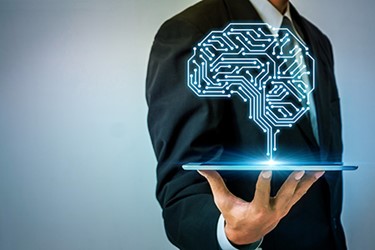Are You Up To Speed On AI Terminology?

By Rob Wright, Chief Editor, Life Science Leader
Follow Me On Twitter @RfwrightLSL

When sitting down to interview Ameet Nathwani, M.D., EVP of Sanofi’s medical function for an upcoming feature article (i.e., Readying Sanofi For The Era Of Digital Health) in our August issue, he was frequently using some artificial intelligence (AI) terms with which I was only vaguely familiar. So I asked the good doctor if he could “define this, and explain that” to help me better understand. For example, many people use the terms AI and digital assistants (e.g., Siri) interchangeably. Though digital assistants utilize AI, AI doesn’t have to take the form of a digital assistant. And machine learning (ML) is not AI, though it is necessary for the development of AI, because machines, like humans, must be taught.
What’s A Data Lake?
“A data lake is basically a platform that has data from every conceivable source and is stored in a way that can be segregated, aggregated, and analyzed in multiple dimensions,” explains Nathwani. “You can do this even if the data has come from completely different sources or has different levels of specificity.” According to Nathwani, such data could be structured or unstructured, and it could include doctors’ notes and laboratory data. “A data lake puts all this information in one place and enables a user to find ways to link the data together to make sense of it,” he concludes.
What Is Digital Health?
According to Nathwani, the term digital health means many things to many people. “I define digital health as a convergence of advanced biological [e.g., the human genome] and engineering science with computer-assisted computational analytics.” The amount of data is so big that to unravel and make sense of it you need advanced computational technologies. “But digital health also includes the attachment of physical science and materials, because you now can create new devices capable of delivering drugs tailored by algorithms. But the end goal of digital health must be to improve the precision and personalization of healthcare delivery,” he contends.
Additional Resources
There are many more AI terms (e.g., genetic algorithm, heuristics, and recurrent neural network) being thrown about beyond those defined by Nathwani above. One resource I found instructive was put together by Richaldo Elias, a computer science engineering student and AI enthusiast. His 2017 article is about a 5-minute read and a good investment of your time. For as Albert Einstein said, “Any fool can know. The point is to understand.”
Another resource you might enjoy is this 2016 TED Talk, Can We Build AI Without Losing Control Over It? by Sam Harris, an American author, philosopher, and neuroscientist. This talk is instructive, for it goes beyond just facilitating your understanding of what AI is, but what it portends. Feel free to share suggestions in the comment section below for other resources you have found worthwhile.
